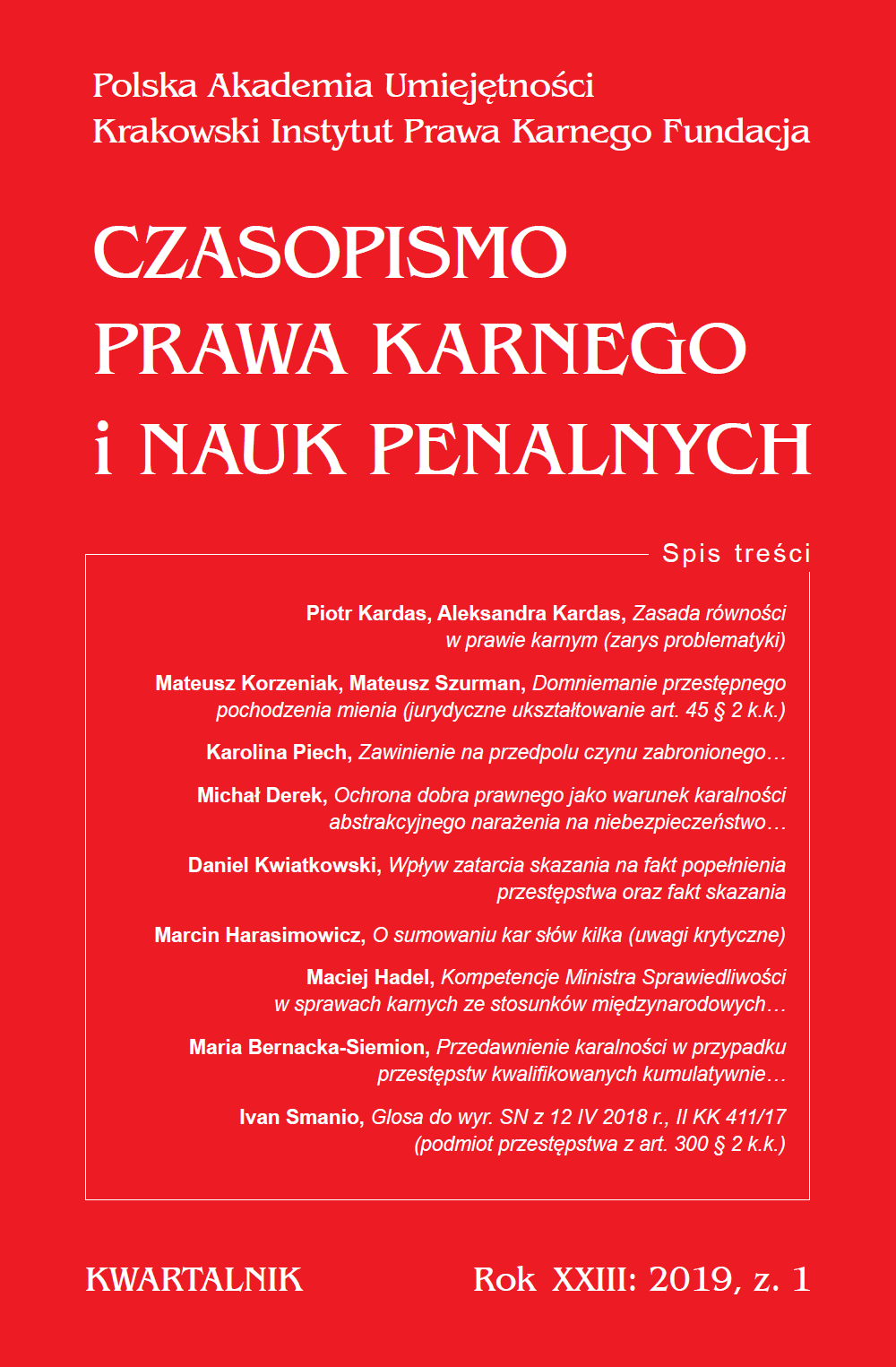Przedawnienie karalności w przypadku przestępstw kwalifikowanych kumulatywnie
The prescription of punishability of crimes qualified cumulatively
(remarks on the Resolution of Seven Judges of the Supreme Court of 20 September 2018, I KZP 7/18)
Author(s): Maria Bernacka-SiemionSubject(s): Law, Constitution, Jurisprudence, Criminal Law, Court case
Published by: Polska Akademia Umiejętności / Krakowski Instytut Prawa Karnego Fundacja
Keywords: prescription;cumulative qualification;different modes of prosecution;circumstances resulting in an extension of a prescription period;exclusion of prescription
Summary/Abstract: The article presents the analysis of the prescription of punishability of crimes qualified cumulatively (Article 11 § 2 of the Polish Criminal Code; k.k.) based on the Resolution of Seven Judges of the Supreme Court, Criminal Division, of 20 September 2018, I KZP 7/18. The paper raises the question of the legitimacy of the application of Article 11 § 3 k.k. (the most severe penalty for a crime according to all concurrent provisions). The author also refers to uncommon situations, such as the case when the legislator, on the basis of the lex specialis rule, defines the circumstances resulting in extension of a prescription period (Article 101 § 4 points 1 and 2 k.k. – selected crimes committed against a minor) or excludes the prescription (Article 105 § 1 – 2 k.k.). This article analyses the situation when the concurring statutory provisions describing the elements of a prohibited acts have different modes of prosecution, especially in cases when there is no motion from a private prosecutor or a complaint from an authorized person (negative conditions of criminal proceedings stated in Article 17 § 1 points 9 and 10 of the Polish Code of Criminal Procedure).
Journal: Czasopismo Prawa Karnego i Nauk Penalnych
- Issue Year: 23/2019
- Issue No: 1
- Page Range: 175-186
- Page Count: 12
- Language: Polish

